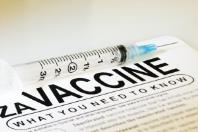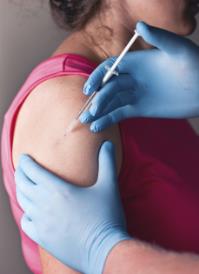|
|
Leah Durant | Vaccine Attorney - Vaccine Blog
Wednesday, June 10, 2020
 When getting vaccinated, it is important to be aware of both the side effects of the particular vaccine as well as the signs of related vaccine illnesses and injuries. As the Centers for Disease Control and Prevention (CDC) explain, “Usually vaccine side effects are minor . Read more . . .
Monday, June 8, 2020
 If your child has had an adverse reaction to the flu shot or any other vaccination, there are a few steps you will want to take to ensure your child’s wellbeing and to make sure your family has the financial resources it needs to manage the costs of your child’s illness or injury. Here, national vaccine lawyer Leah V. Durant explains what parents need to know: 1. Seek Medical Attention for Your Child PromptlyAll vaccines have potential side effects; and, for many vaccines, the risk of side effects is particularly high among children. However, in some cases, what appear to be side effects can actually be symptoms of a potentially-serious Read more . . .
Wednesday, June 3, 2020
 Having an allergic reaction to a vaccine can potentially lead to serious consequences. A severe allergic reaction is known as anaphylaxis, and the effects of anaphylaxis can range from swelling and hives to anaphylactic shock. So, how can you find out if you are allergic to a vaccine? Consult with Your DoctorAs with all medical questions, if you would like to find out if you are allergic to a vaccine, you should consult with your doctor. Your doctor can review your medical history, order any necessary tests and determine if you are at risk of having a severe allergic reaction to a particular vaccine. Review the Vaccine’s List of IngredientsWhen someone says that he or she is allergic to a vaccine, what that person really means is that he or she is allergic to a particular vaccine ingredient. Read more . . .
Monday, June 1, 2020
 The Centers for Disease Control and Prevention (CDC) considers all approved vaccines to be generally safe for most people. In fact, on its website, the CDC simply states, “Vaccines are safe and effective.” However, all vaccines have known side effects, and getting vaccinated can lead to serious medical issues in some cases. Read more . . .
Wednesday, May 27, 2020
 There are several different types of illnesses and injuries that have been linked to vaccinations. Some of these, such as encephalopathy, are linked to specific vaccines (DTP, DTaP, MMR and MMRV), while others, such as shoulder injuries related to vaccine administration (SIRVA), are risks for all vaccine recipients. There are several different types of illnesses and injuries that have been linked to vaccinations. Some of these, such as encephalopathy, are linked to specific vaccines (DTP, DTaP, MMR and MMRV), while others, such as shoulder injuries related to vaccine administration (SIRVA), are risks for all vaccine recipients.
Chronic arthritis falls into the first category. Under the National Vaccine Injury Compensation Program (VICP), chronic arthritis is listed as an<a href="https://vaccinelaw.com/lawyer/2018/02/12/Filing-a-Claim/Filing-a-Vaccine-Injury-Claim-Tips-to-Consider-Before-Hiring-a-Vaccine-Injury-Lawyer_bl33238.Read more . . .
Saturday, May 9, 2020
 The Centers for Disease Control and Prevention (CDC) recommend the annual flu shot for most people. According to the CDC’s data, the flu shot prevents millions of recipients from getting influenza each year, and tens of thousands of people avoid influenza-associated hospitalizations as a result of getting vaccinated. Read more . . .
Monday, March 16, 2020
 The human papillomavirus (HPV) is one of the Centers for Disease Control and Prevention’s (CDC) recommended vaccines. The CDC Read more . . .
Wednesday, March 4, 2020
 The Health Resources & Services Administration (HRSA) publishes monthly updates on vaccine injury claims under the National Vaccine Injury Program (VICP). On January 1, 2020, it published year-end data for 2019. The Read more . . .
Saturday, February 22, 2020
 Getting the flu shot is important. The Centers for Disease Control and Prevention (CDC) recommend it for most people, and scientific research has shown that the flu shot protects millions of Americans against influenza each year. However, getting the flu shot can also result in adverse reaction. Read more . . .
Wednesday, February 12, 2020
 While getting the flu shot can help reduce your risk of getting sick, it does not guarantee protection against influenza. Over the past decade, the flu shot’s overall vaccine effectiveness (VE) rating has ranged from 19 to 60 percent, and each year millions of Americans still choose not to get vaccinated. Read more . . .
Monday, February 3, 2020
 There are right and wrong ways to administer vaccines. Although giving someone a flu shot may seem like a fairly straightforward process, mistakes during immunizations are common, and these mistakes often lead to a class of injuries known as Shoulder Injury Related to Vaccine Administration (SIRVA). One of the most-common mistakes that can lead to SIRVA is inserting the needle too high on the patient’s arm. What is the Proper Location for Administering a Flu Shot?The Centers for Disease Control and Prevention (CDC) provides guidelines for proper administration in a book titled, Epidemiology and Prevention of Vaccine-Preventable Diseases, also known as the “Pink Book.” The Pink Book Read more . . .
← Back
|
|
|
|